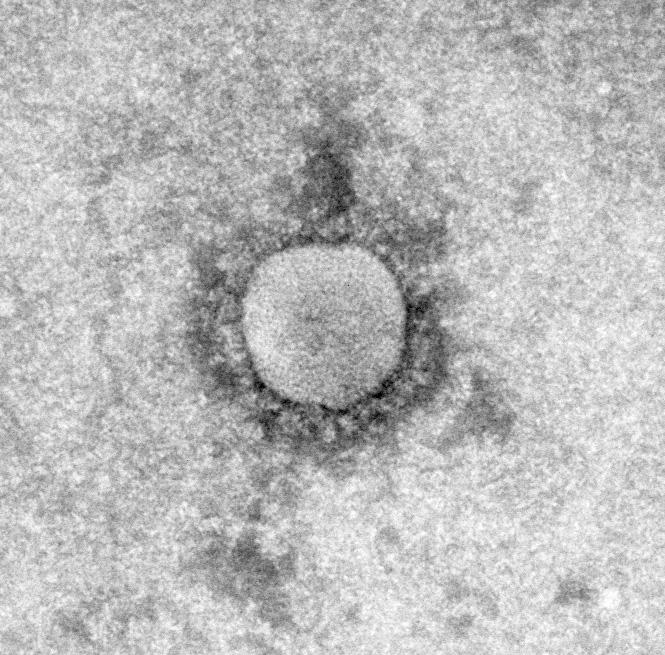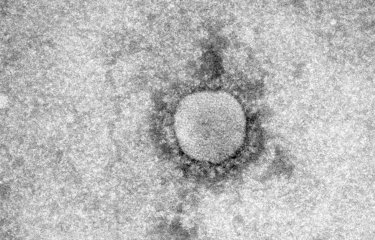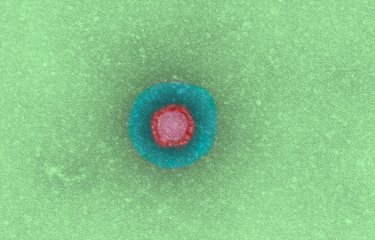In a study published online on July 5, 2013 for the medical journal The Lancet, a team from the Institut Pasteur suggests that the coronavirus MERS-CoV, in its current form, is not capable of triggering a global epidemic. However, it should not be assumed that the virus’ transmissibility will not increase if the virus mutates or if transmission occurs at a one-off event where large numbers of people are gathered. Because of this, scientists emphasize the importance of identifying the animal reservoir for the virus in order to stop transmission to humans and the importance of continued monitoring, worldwide, of suspected cases in order to diagnose, treat, and isolate new patients as quickly as possible.
Press release
Paris, May 29, 2013

In a study published July 5, 2013, the Epidemiology of Emerging Diseases Unit at the Institut Pasteur in Paris, led by Arnaud Fontanet (epidemiologist and professor at the CNAM), estimates the pandemic risk of the MERS-CoV. By drawing on the analysis of known cases within the literature, the scientists indicate that the virus, in its current form, has not yet reached pandemic potential.
Romulus Breban, a scientist within the research unit, reached this conclusion by calculating the basic reproduction number of the virus; it represents the number of secondary infections resulting from each infected patient. In their most pessimistic scenario this number was estimated at 0.69. In order to have epidemic potential the number must be at least 1.0 (meaning that each infected patient leads to more than one secondary infection). This data was compared with the basic reproduction number of prepandemic SARS, which was 0.8. While the figures may be close (0.69 and 0.8) the pandemic risk for the new coronavirus is not as apparent: “both viruses share similarities on clinical, epidemiological, and virological levels, but they have distinct biology, for example using different surface receptors on human cells”, explains Arnaud Fontanet. Moreover, the spread of MERS-CoV is slower than that of SARS. While the latter mutated into a highly infectious form (in humans) within a matter of months, the MERS-CoV has been present for over a year and has yet to mutate into a pandemic form.
However, the scientists stress that the reproduction number of the virus may increase if the virus mutates or if transmission occurs at a one-off event where large numbers of people are gathered. In order to avoid another SARS, the scientists recommend implementing the necessary means to stop the virus progression before it reaches pandemic potential. This is why identifying the animal reservoir for MERS-CoV is crucial to stopping transmission to humans as is the need for continued monitoring, worldwide, of suspected cases in order to diagnose, treat, and isolate new patients as quickly as possible.
--
Illustration - Copyright Institut Pasteur
Caption – Viral particle of MERS-CoV observed using electron microscopy.
Find out more
The new coronavirus and the role played by the Institut Pasteur:
www.pasteur.fr/en/institut-pasteur/press/press-documents
Source
Inter-human transmissibility of MERS-CoV: estimation of pandemic risk, The Lancet, July, 5 2013.
Breban R (1), Riou J (1), Fontanet A (1,2).
(1) Institut Pasteur, Emerging Diseases Epidemiology Unit, Paris, France
(2) CNAM (French National Conservatory of Arts and Trades), Paris, France
Contacts
Institut Pasteur Press Office
Jérémy Lescène - Jeremy.lescene@pasteur.fr - +33 (0)1 45 68 81 01
Nadine Peyrolo - nadine.peyrolo@pasteur.fr - +33 (0)1 45 68 81 47





